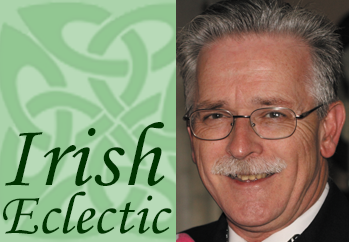The Seventh Son of Seventh Son: A Dying Breed of Healers
Opinion Advocates for ideas and draws conclusions based on the author/producer’s interpretation of facts and data.
 By Brian McGowan
By Brian McGowan
In Irish lore and legend there is a strong belief in mystical powers bestowed upon some by virtue of their order of birth. Most prevalent of these is a role that blesses certain males who just happen to be born seventh in an unbroken line of males.
Females born in between throw the whole system awry. And apparently, it is not just being born the seventh consecutive son that gains one admittance to the club. One must also be sired by a seventh son!
The power accorded to this lucky individual is important, and he is still sought after in many parts of rural Ireland to this day. Across Europe, and indeed the world, there is a similar belief, and these individuals are revered in many cultures. They are the healers, those who can cure by touch any number of afflictions, even those that medical science has had a shot at and failed to arrest.
Popular website www.IrishCentral.com investigated this legendary role several years ago and discovered that in the realm of myth there was apparently more than a kernel of truth to be found. Consider the number seven itself. Supposed by many cultures to be a lucky number, it is rooted in all cultures as a basic unit of time. The week has seven days. From a Biblical standpoint, the number represents the length of time it took God to create the world.
The scope of illnesses documented to have been cured by a seventh son are many: scrofula, warts, ringworm, heart issues, ulcers, wounds, contusions, rashes, throat infections and shingles, just to name some. And the healer, if they are genuine, will refuse the payment of any fee for the cure they have brought to the afflicted. In essence, they have a “day job,” which pays the bills, and offer their unique talents as healers fully free of charge.
Ireland has no monopoly on the phenomenon. Numerous instances exist of native American tribes with several spectacularly gifted healers in their midst, each occupying a vaunted place in the social hierarchy of tribe and clan. The common thread seems to be the same – birth order and qualification as a seventh son of a seventh son. There are cases, however, where just by virtue of being a seventh son, though not sired by one, a person can be imbued with the same healing force.
But it is in Ireland, and the countries of the Irish diaspora, where the belief, and the practice, seems to persist in the modern day in greater earnest than in other cultures. The New York Times in 2021, printed an article by Megan Specia that took a deep look at the practice, often referred to by believers as “the charm,” or “the cure.”
Though the number of recognized healers dwindles each year, there are still several hundred to whom residents in more remote areas flock when illness falls upon them. The Times article cites Joe Gallagher, from County Offaly and Bart Gibbons, from County Leitrim, among others.
Not all are of the “seventh son” category. Some are the keepers of family “cures,” passed down from father to son, or mother to daughter. But all are recognized as possessing a special gift, which modern medical science grudgingly tolerates.
Some even posit that modern medicine sometimes misses out on the “interconnectedness” of physical, mental, emotional and spiritual health, all things that “the cure” seems to touch upon, in a system of beliefs that may well pre-date Christianity, as so many things in Ireland seem to do.
The greatest threat to the “seventh son” healers – worldwide, not just in Ireland – is the lower birth rates from historical highs. While Irish families have always favored large numbers of children, this has changed dramatically in recent history. Where once a family of 13 or more children would be commonplace, today the size is much smaller, and very rare is the person born who meets the strict criteria.
While demand may still be there, the supply side of the equation is very much in doubt. And that, it will be said, bides a sad day.
Longtime Pleasantville resident Brian McGowan was born and raised in the Bronx and is a second-, third- and fifth-generation Irish-American/Canadian, as his immigrant ancestors followed several paths to the New World. Reach him at brian.m.mcgowan1952@gmail.com. He is the author of three books: “Thunder at Noon,” about the Battle of Waterloo; “Love, Son John,” about World War II; and “Island Prize,” about the Revolutionary War in 1776 New York. All are available at Amazon.com.

Examiner Media – Keeping you informed with professionally-reported local news, features, and sports coverage.
